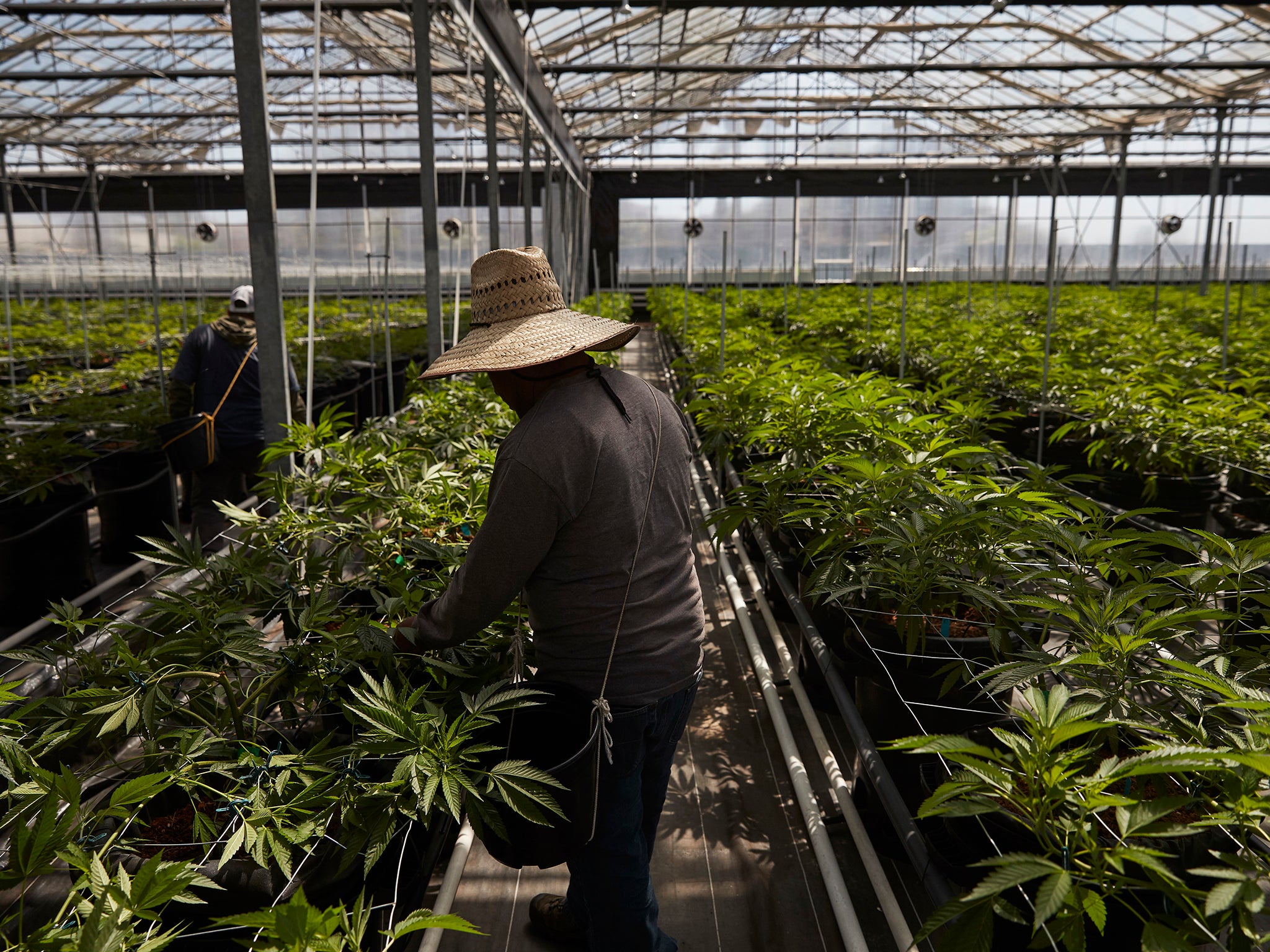Skunk smell from marijuana crops driving Californians to distraction
'We don't want a marijuana smell, we want fresh air'

Your support helps us to tell the story
From reproductive rights to climate change to Big Tech, The Independent is on the ground when the story is developing. Whether it's investigating the financials of Elon Musk's pro-Trump PAC or producing our latest documentary, 'The A Word', which shines a light on the American women fighting for reproductive rights, we know how important it is to parse out the facts from the messaging.
At such a critical moment in US history, we need reporters on the ground. Your donation allows us to keep sending journalists to speak to both sides of the story.
The Independent is trusted by Americans across the entire political spectrum. And unlike many other quality news outlets, we choose not to lock Americans out of our reporting and analysis with paywalls. We believe quality journalism should be available to everyone, paid for by those who can afford it.
Your support makes all the difference.The smell from marijuana crops is driving Californians to distraction.
Marijuana has become a new crop of choice in the farmlands surrounding Carpinteria, in south California.
Residents say a thick, skunk-like odour from the marijuana plants settles over the valley in the evenings and before dawn.
"We don't want a marijuana smell," Xave Saragosa, a 73-year-old retired sheriff's deputy who was born and raised in the town and lives near a greenhouse that grows marijuana, said. "We want fresh air."
Mr Saragosa said the smell keeps his wife up at night due to coughing.
To keep out the stench, they have tried stuffing pillows under doors, lighting incense and shutting windows, a reluctant choice since it also keeps out the cool ocean breezes.
Toni Stuart, an 80-year-old retired Episcopal priest, said the odour doesn't creep into the area near the beach where she lives, but she worries about the community changing.
"I would not like Carpinteria to be the 'cannabis capital' of Southern California. I like it the way it is. It's a very quiet, unpretentious beach town," she said.
"If people want to grow cannabis instead of flowers or avocados or macadamia nuts — I suppose that's their right. But they've got to think about their neighbours."
Carpinteria is about 85 miles from Los Angeles and is famous for its beaches, wine and temperate climate.
The county amassed the largest number of marijuana cultivation licenses in California since broad legalisation arrived on 1 Jan — about 800, according to state data compiled by The Associated Press.
Two-thirds of them are in Carpinteria and Lompoc, a larger agricultural city about an hour's drive to the northwest.
Virtually all of Carpinteria's licenses are for small, "mixed-light" facilities, which essentially means greenhouses.
The area's greenhouses have their roots in Carpinteria's cut flower industry and some flower growers weary of import competition have started trying to grow cannabis.
Others have sold their greenhouses to marijuana investors.
"We have literally no carnation production in the United States any longer because South America grows them so cheaply," said Kasey Cronquist, chief executive of the California Cut Flower Commission. "
Farmers had to move crops, and that is what we have seen happen over time — they've gone to crops that are more valuable or more difficult for Ecuador and Colombia to ship."
Some farmers see cannabis as a plant that can help preserve the area's farming culture, said Mollie Culver, a consultant for the Cannabis Business Council of Santa Barbara County.
Many growers live locally and welcomed the county's recently crafted regulations requiring odour abatement, she said.
Californians voted to legalise marijuana in 2016, but counties and cities have a say on whether they allow cannabis production, distribution or sales.
Join our commenting forum
Join thought-provoking conversations, follow other Independent readers and see their replies
Comments